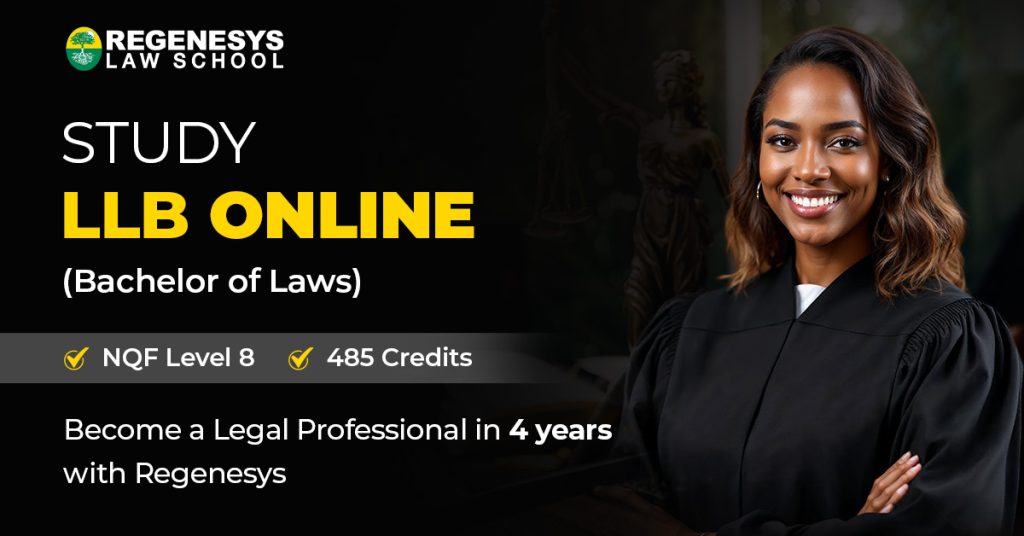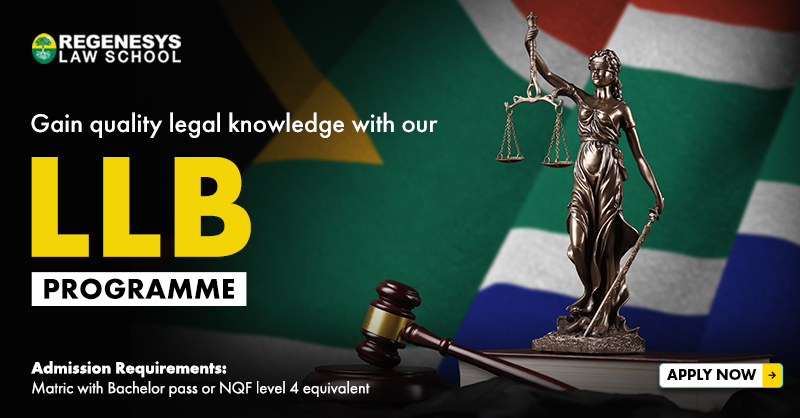Planning to study law in South Africa in 2025? To qualify for a Bachelor of Laws (LLB) programme, you must meet several important entry conditions. These include meeting a minimum APS score, understanding the required NQF level, and meeting specific English language benchmarks. Prospective students should also be aware of options for mature-age admission and Recognition of Prior Learning (RPL). If you’re an international applicant, additional documentation and qualification checks will apply.
In this article, we will explore the full scope of South Africa LLB eligibility requirements 2025, including academic, language, and special entry criteria.
Table of Contents
- What is an LLB Degree in South Africa?
- APS Score for LLB: What You Need to Know?
- NQF Level 8 Law and What It Means
- Meeting the English Requirement for LLB Admission
- Can You Apply Without Matric? Exploring Maturity Entry and RPL
- LLB Requirements for International Students Applying to South Africa
- Do LLB Requirements Vary Across South African Universities?
- Regenesys LLB: A Modern Route to Law Education
- Common Mistakes During LLB Applications
- Conclusion
- South Africa LLB Admission Requirements 2025 – FAQs
What is an LLB Degree in South Africa?
The Bachelor of Laws (LLB) is the cornerstone qualification for anyone aiming to enter the legal profession in South Africa. It is recognised as the primary academic path toward becoming an attorney, advocate, legal adviser, or other legal professional. The programme provides learners with a deep understanding of South African law, as well as the ethical and practical tools necessary to navigate complex legal environments.
The LLB is generally structured as a four-year undergraduate programme. However, for individuals who already hold a degree in another field, a two-year postgraduate LLB is also available. The curriculum balances theoretical content with practical applications, enabling students to gain real-world insight into legal practice.
Understanding the South Africa LLB eligibility requirements 2025 is vital before applying, as legal education follows strict national standards to maintain the integrity of the profession.

APS Score for LLB: What You Need to Know?
When applying for an LLB in South Africa, your APS (Admission Point Score) plays a central role in determining your eligibility. The APS is calculated based on your performance in your National Senior Certificate (NSC) or equivalent qualification. Institutions use this score to assess whether you meet their academic requirements.
Your APS score helps institutions gauge your overall academic ability, and it is particularly significant for competitive programmes like law. Since LLB programmes involve rigorous analytical, reading, and writing tasks, a higher APS reflects better preparedness for the coursework.
Here is a basic breakdown of how the APS score is calculated and what it means for your application:
- 80%-100% = 7 points
This is the highest bracket and shows excellent academic performance. Students in this range are well-positioned for competitive degrees. - 70%-79% = 6 points
This score bracket is still strong and reflects above-average understanding of subjects. - 60%-69% = 5 points
A solid pass mark, suitable for many undergraduate courses, including law. - 50%-59% = 4 points
This is often the minimum acceptable score in key subjects like English for LLB. - 40%-49% = 3 points
Considered a basic pass. This may reduce your total APS and affect your LLB eligibility. - 30%-39% = 2 points
A very low score. Usually insufficient for law programmes.
In general, the APS score LLB requirements in South Africa ranges between 26 and 34 points, depending on the institution. English is typically a compulsory subject in the calculation, and Life Orientation may be weighted less heavily.
Meeting the minimum APS score is a critical step in fulfilling the South Africa LLB eligibility requirements 2025.
NQF Level 8 Law and What It Means
The National Qualifications Framework (NQF) is a structured system in South Africa that classifies academic qualifications by their complexity and level. Each qualification is assigned a level on a scale from 1 to 10. Understanding where the LLB sits on this scale is crucial for ensuring whether you meet the South Africa LLB eligibility requirements 2025.
The LLB is pegged at NQF level 8, which signifies a high level of academic and cognitive demand. This level requires learners to demonstrate advanced knowledge, critical reasoning, and the ability to engage in complex problem-solving and research tasks. NQF Level 8 is comparable to an honours degree or a four-year bachelor’s degree with advanced coursework.
Here’s why NQF Level 8 law is important:
- Academic Rigor: The level reflects the depth of legal content and the intellectual engagement expected from students.
- Qualification Recognition: Both local and international institutions recognise NQF Level 8 qualifications, improving your career mobility.
- SAQA Alignment: The South African Qualifications Authority (SAQA) evaluates local and foreign qualifications to ensure they match the NQF levels. This ensures standardisation across educational institutions.
A key part of meeting the South Africa LLB eligibility requirements 2025 is ensuring your previous studies qualify you for an NQF Level 8 programme.
Explore Complete LLB Guide: Study Modes, Subjects, Salary & Morehere
Meeting the English Requirement for LLB Admission
Language plays an essential role in legal studies. Since legal work requires interpreting statutes, writing arguments, and presenting cases, strong command of English is non-negotiable. Thus, English forms a central part of the LLB admission requirements.
Most institutions require that applicants achieve specific grades in English at the matric level as part of South Africa LLB eligibility requirements 2025. This is both to ensure academic readiness and to prepare students for the linguistic demands of legal study and practice.
Here are the minimum English requirement matric law standards usually expected:
- 50% or higher in English Home Language
This indicates strong comprehension and communication skills, necessary for legal reasoning and essay writing. - 60% or higher in English First Additional Language
Applicants who take English as an additional language need a slightly higher pass mark to demonstrate fluency.
Failure to meet the English requirement could disqualify you from admission, regardless of your APS score. This requirement reflects the central role language plays in legal discourse and ensures learners are capable of engaging with complex texts.
Meeting the English requirement is non-negotiable and must be satisfied as part of the South Africa LLB eligibility requirements 2025.

Can You Apply Without Matric? Exploring Maturity Entry and RPL
Not everyone follows the traditional schooling path. Many adults find themselves wanting to pursue law later in life, sometimes without a completed matric certificate. Thankfully, South African institutions provide alternate pathways for such candidates through maturity entry and Recognition of Prior Learning (RPL).
These pathways acknowledge real-world experience and informal learning as valid entry routes. They are designed to support working professionals or individuals with significant life experience who wish to shift into legal studies.
Here’s how each works:
1. Maturity Entry
Candidates aged 23 and above may apply even without formal school-leaving certificates. Admission is based on work experience, life achievements, and potential to succeed academically. Interviews or assessments may be required.
2. Recognition of Prior Learning (RPL)
This process evaluates your informal or non-accredited learning. You may need to submit a portfolio of work or undergo an assessment to prove your competency. RPL is a flexible entry route that opens legal education to more people.
These alternatives are vital for broadening access and are a recognised part of the South Africa LLB eligibility requirements 2025.
Read more on Bachelor of Law Entry Requirements in South Africa: Your Guide for Starting a Legal Career here!
LLB Requirements for International Students Applying to South Africa
International applicants wishing to study law in South Africa must meet additional administrative and academic criteria. These requirements ensure that foreign qualifications align with local educational standards and that applicants are ready for the rigours of South African legal studies.
Understanding the South Africa LLB eligibility requirements 2025 for international studnets can help avoid delays and ensure a smooth admission process:
1. SAQA Evaluation
The South African Qualifications Authority (SAQA) must evaluate foreign academic transcripts to verify their authenticity and determine the equivalent NQF level.
2. English Language Proficiency
If English is not your first language, you may need to submit results from language proficiency tests to prove your ability to study in English.
3. A-Level or Equivalent Results
International applicants, especially those from Africa and the Commonwealth, must submit A-level or equivalent results showing they meet the minimum academic threshold.
4. Study Visa and Documentation
Once accepted, international students must apply for a study visa and provide proof of accommodation, medical insurance, and financial support.
Meeting these requirements ensures that international learners are assessed fairly and forms part of the broader South Africa LLB eligibility requirements 2025.
Read on Is LLB Valuable in South Africa? Here’s What You Need to Know here!
Do LLB Requirements Vary Across South African Universities?
While the national education framework ensures consistency in qualifications, individual institutions have the discretion to set their own specific entry requirements for law in SA. This often leads to slight variations across different universities.
These variations can include differences in APS requirements, subject preferences, and recognition of alternative entry routes. Understanding these nuances can help you choose the institution that best matches your academic profile and career goals.
Common areas where differences may appear:
1. APS Thresholds
Some universities may require a minimum APS of 26, while others may only consider applicants with 32 or higher.
2. Preferred Subjects
Subjects like History or Business Studies may be viewed favourably by some faculties as indicators of readiness for legal studies.
3. Flexibility with RPL
Some institutions actively support alternative entry through RPL, while others follow a more traditional admissions model.
These differences highlight the importance of checking specific criteria at your chosen institution while still aligning with the broader South Africa LLB eligibility requirements 2025.
Know Who Should Study the LLB Programme in South Africa? here!
Regenesys LLB: A Modern Route to Law Education
The Regenesys Bachelor of Laws (LLB) programme offers a future-focused and accessible approach to legal education in South Africa. With the option to study online or through contact sessions, it is designed to accommodate the needs of modern learners, including working professionals and students across various regions.
This programme equips students with a strong foundation in legal theory, practical case studies, and ethical leadership. It encourages critical thinking, independent problem-solving, and active engagement with contemporary legal challenges.
Regenesys LLB Admission Requirements Include:
- Matric with Bachelor pass or NQF Level 4 equivalent
Applicants must hold a school-leaving certificate that allows for university entrance or an equivalent qualification. - Minimum APS of 26
A solid APS score is essential to demonstrate academic readiness. - English First Language – 50%; English Second Language – 60%
These scores reflect the language proficiency required for success in legal studies. - Competence in written and oral communication at NQF Level 4
Legal work demands clear expression, and communication skills are assessed during admissions. - A-Level equivalency for international students
This ensures that international applicants meet equivalent academic standards.
The programme aligns with national expectations, making it a credible and forward-thinking choice under the South Africa LLB eligibility requirements 2025.
Read on Online vs Contact LLB Programme: Which is Right for You? here!
Common Mistakes During LLB Applications
Applying for university can be a complicated process, and it’s easy to make mistakes that could delay or derail your admission. Understanding the most common errors can help you avoid them and improve your chances of meeting the South Africa LLB eligibility requirements 2025 and being accepted into an LLB programme.
Here are some of the frequent mistakes and how to avoid them:
1. Misjudging Your APS Score
Many applicants either overestimate or underestimate their APS score. Always calculate it correctly using official guidelines.
2. Overlooking Language Requirements
Some students focus on APS but neglect the English requirement. Both are equally important for LLB admission.
3. Ignoring RPL Opportunities
Mature applicants sometimes miss the chance to apply through RPL, assuming they’re not eligible.
4. Missing Deadlines
Law is a competitive field. Submit your application early to avoid last-minute complications.
Avoiding these pitfalls ensures you are well-prepared and meet all the South Africa LLB eligibility requirements 2025.

Conclusion
Understanding the South Africa LLB eligibility requirements 2025 is essential for anyone considering a future in law. From meeting the correct APS score for LLB, ensuring your qualifications align with the NQF level 8 law standard, to satisfying the English requirement for matric law, each element plays a crucial role in your admission journey. Whether you’re a school leaver, a mature-age applicant, or an international student, knowing the criteria in advance can help you apply with clarity and confidence.
At Regenesys, our Bachelor of Laws (LLB) programme is structured to support aspiring legal professionals with high-quality education, real-world relevance, and accessible entry pathways. We invite you to explore your future in law with us.
Apply today to the Regenesys LLB programme and take the first step toward a meaningful legal career.
South Africa LLB Admission Requirements 2025 – FAQs
What is the APS score needed for LLB in 2025?
Most institutions require a minimum APS score LLB of 26 to 34, with English included.
Can I study LLB without Mathematics?
Yes, Mathematics is not usually a compulsory subject for LLB admission.
What is NQF level 8 in law?
It’s the academic level assigned to the LLB degree, indicating an advanced undergraduate qualification.
Is English compulsory for LLB admission?
Yes, a pass of 50% in English Home Language or 60% in First Additional Language is usually required.
Can I apply for LLB without matric?
Yes, via maturity entry or RPL pathways for applicants aged 23+ with relevant experience.
What are the LLB admission requirements for international students?
You need SAQA evaluation, English proficiency, A-level equivalents, and a valid study visa.
What is the maturity entry for law in South Africa?
It’s an alternative admission route for adults (23+) who have work experience but no formal qualification.
How do I calculate my APS score for LLB?
Add the point values for your six best subjects (including English) using the NSC scoring guide.







